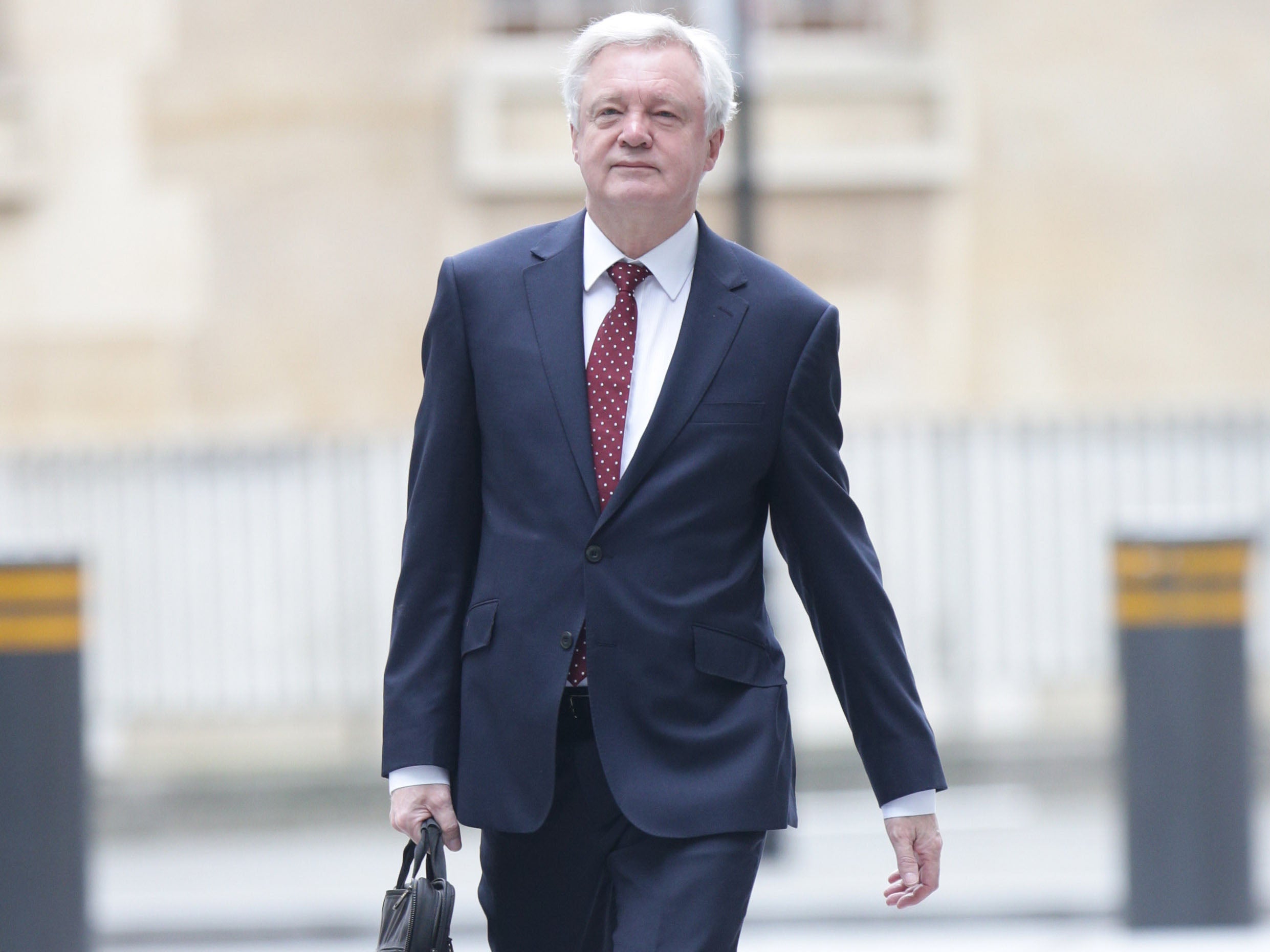Brexit: David Davis set to clash with EU after insisting UK will sign trade deals while remaining in a customs union
Stance will provoke fresh accusations that Government wants to 'have their cake and eat it' - as Brexit Secretary admits EU negotiator is 'getting quite cross with us'

Your support helps us to tell the story
From reproductive rights to climate change to Big Tech, The Independent is on the ground when the story is developing. Whether it's investigating the financials of Elon Musk's pro-Trump PAC or producing our latest documentary, 'The A Word', which shines a light on the American women fighting for reproductive rights, we know how important it is to parse out the facts from the messaging.
At such a critical moment in US history, we need reporters on the ground. Your donation allows us to keep sending journalists to speak to both sides of the story.
The Independent is trusted by Americans across the entire political spectrum. And unlike many other quality news outlets, we choose not to lock Americans out of our reporting and analysis with paywalls. We believe quality journalism should be available to everyone, paid for by those who can afford it.
Your support makes all the difference.David Davis has put Britain on a collision course with Brussels by insisting on the right to sign other trade deals from day one after Brexit – while remaining in a customs union.
The Brexit Secretary insisted the Government would “negotiate and sign” agreements once EU withdrawal is completed, whatever the nature of any transitional period after 2019.
Earlier, a former EU trade commissioner warned Brussels was likely to block Britain’s customs proposal on those terms, describing it as “very problematic”.
Karel De Gucht said the EU would not concede the benefits of a “temporary benefits union” if that meant “keeping Britain warm” for preferential agreements with non-EU countries in future years.
But Mr Davis, asked on BBC Radio 4’s Today programme what outside trade advantages Britain was seeking, replied: “Negotiate and sign.”
He added: “We should be able to have an arrangement whereby we can do the negotiation, sign it off, but not enter it into effect. That’s the sort of thing I would expect.”
He insisted the law was on Britain’s side, because the “duty of sincere co-operation” – the bar on customs union members negotiating other deals – would lapse with EU withdrawal.
“Once 2019 comes around and we leave, that legal duty goes away,” the Brexit Secretary argued.
The stance appears to guarantee a confrontation when the exit negotiations resume with Michel Barnier, the EU’s chief negotiator, at the end of the month.
It is certain to provoke fresh accusations that the Government is trying to “have their cake and eat it” in the exit talks. In a later interview, on LBC radio, Mr Davis admitted: “Michel's getting quite cross with us.”
It is also possible that the EU will refuse to discuss the plan at all – having insisted the UK must first settle its priorities; citizens’ rights, the so-called “divorce bill” and the Northern Ireland border.
In the interview, Mr Davis was careful not to rule out Britain making some payments to the EU after 2019, as part of the transitional deal now being sought.
However, he insisted it would not be the current “£10bn a year” – appearing to rule out the £36bn, three-year financial settlement thought to be under discussion.
And he rejected suggestions that Britain had failed to put forward proposals until 14 months after the EU referendum, saying of the negotiation: “It’s going incredibly well.”
Mr Davis also rejected suggestions that Britain would have to make significant concessions to get what it wants, insisting: “The benefit goes two ways.”
Arguing huge customs queues would also damage EU businesses, he added: “I make no apology for being ambitious. That is the benefit - that is what they are going to get out of it.”
In seeking identical customs rules for a temporary period, ministers are finally accepting the many months of warnings from business groups of looming border chaos.
Without a deal, there are fears of enormous queues at Dover and other checkpoints, huge disruption to trade and a need for many hundreds of extra customs staff.
Under Britain’s plan, both sides would have time to implement “technology-based solutions to make the customs regime as smooth as possible” when permanent arrangements are introduced.
Join our commenting forum
Join thought-provoking conversations, follow other Independent readers and see their replies
Comments